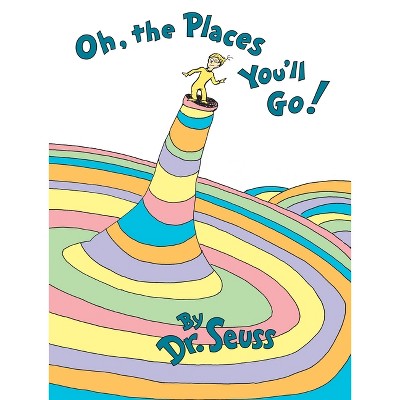$41.00 when purchased online
Target Online store #3991
About this item
Highlights
- Asking, How could they do it?
- About the Author: Elizabeth Minnich received her doctorate from the New School under the direction of Hannah Arendt.
- 256 Pages
- Philosophy, Ethics & Moral Philosophy
Description
About the Book
Asking, How could they do it? about the many ordinary people who have been perpetrators and those who resist extensive evils-genocide, human trafficking, endemic sexualized violations of females, economic exploitation-the book delves into historic, contemporary, national, and ...Book Synopsis
Asking, How could they do it? about the many ordinary people who have been perpetrators and those who resist extensive evils--genocide, human trafficking, endemic sexualized violations of females, economic exploitation--the book delves into historic, contemporary, national, and international examples. The author, a moral philosopher, draws also on literature, psychology, economics, journalism, pop culture. Reversing Arendt's banality of evil, she finds that mind-deadening banality, thoughtless conventionality, ambition, greed, status-seeking enable the evil of banality.Review Quotes
"The Evil of Banality is a subtle, original contribution to a literature that attempts to make sense of people's evil-doings. The book approaches its main question, which it sets as guiding a years-long personal quest for an answer, from an Arendtian observation of Eichmann, which is that a necessary condition of evildoing is thoughtlessness. It refines this observation with Camus' existentialist observations of choice. And it narrates an answer to its question using many and different examples, reflecting on them, and drawing conceptual distinctions that illuminate what banality is and how it is related to evil."
"This is a brilliant, wonderfully written, and tightly argued book. The key concepts of intensive v. extensive evil and intensive v. extensive good are exceptionally useful tools for sorting through the ethical dimensions of ordinary lives in a way that puts all of us on notice that it is simply not sufficient to use categories of the 'unthinkable' to distance ourselves from learning to think well, both separately and together."
"This is a time when 'The Fragility of Goodness' is frightening. We need great thinkers like Martha Nussbaum and Elizabeth Minnich to think with. The Evil of Banality is vital reading for those charged with planning a less fragile future for our societies and institutions."
"Very wise and honest book with a strong moral message. The sign of hope for those who still believe that education should immunize people against evil and make them more open for good. The author, identifying thoughtlessness as the most dangerous state of human mind, gives us also a hope for saving our souls as teachers. "The Evil of Banality," like Cicero's "De oratore," reminds us that much more important is to concentrate on how we teach, than on what we teach. The best thing that can happen to everybody who believes in freedom and humanity is to think together with a person such as Elizabeth K. Minnich. This book allows you to do exactly that."
"While I believe it is an ever-present possibility that books can actually make us better people, I see it as quite rare that they either try to or are successful in doing so: I am convinced that this one can."
[A]n important new book.... You will come away from reading this book understanding and appreciating the differences and their implications for how we frame evaluation inquiries.... If we, as a profession, support evaluation as a compliance activity, just going through the motions, thoughtlessly, routinely, mindlessly, we risk the banality of evaluation contributing to and becoming complicit in the banality of evil. Think about it. That is the message I take away from this important book on the life and death importance of thinking.
The Evil of Banality: On the Life and Death Importance of Thinking is important, timely, and needed - truly a tour de force.... Minnich's mature, humane, and wise style suggests that these powerful insights will be read very widely, both by academics and by those who would be turned off by jargon and technical language, and thus, meet the author's deepest goals. I am absolutely convinced that this book is going to be read broadly and loved dearly as a way to help us make sense of our world, ourselves and our actions. And even, dare I say, to make us better people.
This marvelous book deserves a wide readership. Hannah Arendt, Minnich's mentor, wrote the famous book The Banality of Evil. But what Minnich sees in Arendt's book, and in her own case studies, is the great evil resulting from thoughtlessness, which is anything but banal. Minnich shows that 'not seeing, ' a certain obtuseness that hides the full reality of what one is doing, is too often cultivated. One of Minnich's key distinctions is between intensive and extensive evil. The former involves a few people who do monstrous things (the Charles Manson cult). This kind of evil, she argues, can be contained. Extensive evil involves many people going about their lives in ordinary ways, however thoughtlessly, however obtusely, for example, the countless 'ordinary Germans' needed to make the Holocaust possible. Because the network is so wide, it is much more difficult to contain. Minick does point out that one also finds intensive goodness (e.g., Oskar Schindler comes to mind) and that extensive goodness remains a possibility. The difference, of course, is that the latter cannot be thoughtless: it must be created with attention and care, no easy task. Written in a personal, lively style, this book a delight to read, even if the cases of extensive evil depress. Summing Up: Essential. Lower-division undergraduates through faculty; general readers.
About the Author
Elizabeth Minnich received her doctorate from the New School under the direction of Hannah Arendt. Following twenty-five years as a Core Professor in the Graduate School of Interdisciplinary Arts and Sciences at the Union Institute, she now divides her time between Charlotte, NC, where she is professor of moral philosophy at Queens University, and Washington, DC, where she is a Senior Scholar at the Association of American Colleges and Universities. She is the author of Transforming Knowledge (Temple University Press, 1990, 2005) and co-author of The Fox in the Henhouse: How Privatization Threatens Democracy (Berrett-Koehler, 2005).Dimensions (Overall): 8.9 Inches (H) x 5.9 Inches (W) x .7 Inches (D)
Weight: .9 Pounds
Suggested Age: 22 Years and Up
Number of Pages: 256
Genre: Philosophy
Sub-Genre: Ethics & Moral Philosophy
Publisher: Rowman & Littlefield Publishers
Format: Paperback
Author: Elizabeth K Minnich
Language: English
Street Date: December 7, 2016
TCIN: 1004176095
UPC: 9781442276307
Item Number (DPCI): 247-29-1700
Origin: Made in the USA or Imported
If the item details above aren’t accurate or complete, we want to know about it.
Shipping details
Estimated ship dimensions: 0.7 inches length x 5.9 inches width x 8.9 inches height
Estimated ship weight: 0.9 pounds
We regret that this item cannot be shipped to PO Boxes.
This item cannot be shipped to the following locations: American Samoa (see also separate entry under AS), Guam (see also separate entry under GU), Northern Mariana Islands, Puerto Rico (see also separate entry under PR), United States Minor Outlying Islands, Virgin Islands, U.S., APO/FPO
Return details
This item can be returned to any Target store or Target.com.
This item must be returned within 90 days of the date it was purchased in store, shipped, delivered by a Shipt shopper, or made ready for pickup.
See the return policy for complete information.












